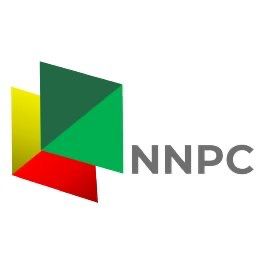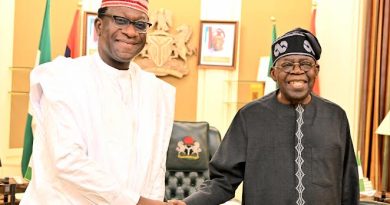ActionAid Nigeria Calls For Suspension Of 5% Fossil Fuel Surcharge Over Risks To The Poor
By Bukar BOLORI
ActionAid Nigeria (AAN) has expressed grave concern over the Federal Government’s planned implementation of a 5% surcharge on fossil fuel transactions, as outlined in Section 158 of the recently gazetted Nigeria Tax Act.
A statement on Thursday by AAN Country Director, Dr. Andrew Mamedu, read: “While we acknowledge the need for innovative revenue generation strategies in the face of dwindling government earnings and commend efforts to promote a shift toward greener energy alternatives, we strongly caution against policies that disproportionately impact the poor, deepen inequality, and further constrain small businesses without providing adequate cushioning or transparency on utilisation.
“The removal of fuel subsidy in 2023, coupled with the floating of the naira, triggered one of the most devastating waves of inflation Nigeria has seen in recent years. Nigerians are yet to recover from that economic shock. Introducing a 5% surcharge by 2026 risks compounding the already dire situation for millions of citizens, particularly for low-income earners, women, youth, farmers, smallholder entrepreneurs, and informal sector workers.”
Mamedu noted that “although the law excludes clean or renewable products such as household kerosene, cooking gas (LPG), and compressed natural gas (CNG), this exclusion does not reflect the energy realities of the average Nigerian. Most small and medium-sized enterprises (SMEs) still rely heavily on petrol and diesel to power their operations due to inadequate electricity supply and lack of affordable alternatives.
“Similarly, many Nigerians still depend on fuel-powered transportation systems. A 5% surcharge will lead to an increase in the pump price of fuel, which will directly translate to higher transportation costs. This ripple effect will be felt in every corner of the economy from increased food prices due to costlier logistics to the price of education, healthcare, and housing. Urban and poor rural communities will bear the brunt of these cascading effects.”
Mamedu said: “ActionAid Nigeria is deeply concerned that there is no clarity on how the funds generated from the surcharge will be managed or used to address the economic realities of the masses. Past experiences such as with the Petroleum Trust Fund (PTF) have shown that without strong accountability mechanisms, such funds can be easily mismanaged or diverted. Without a robust and transparent accountability framework, such surcharges risk becoming additional burdens on the people rather than solutions to development financing. It also opens the door for corrupt officials to divert public funds for personal gain, thereby eroding trust in governance and further marginalising the very citizens the policy claims to support.’’
He stated that in countries where similar surcharges exist, governments provide viable alternatives. In Nigeria, these options are either unavailable or inaccessible, adding that imposing this surcharge in a country without functional clean energy alternatives or affordable transport systems is unjust and out of touch with the lived realities of ordinary Nigerians.
“From a political standpoint, introducing such an unpopular policy towards an election year may seem politically unwise. It sets the stage for increased public dissatisfaction and presents ammunition for opposition criticism.”
ActionAid Nigeria however affirmed that while the president has rightly acknowledged the need to stabilise the economy, stability must begin at the micro level. If macroeconomic indicators are indeed improving, the impact must first be felt by everyday Nigerians before the introduction of new taxes or surcharges. If the government is truly committed to transitioning Nigerians to cleaner energy, then significant investment and infrastructure must come first.
AAN lamented that: “Currently, it takes days for operators to fill CNG vehicles due to limited infrastructure. There are also steep import duties on clean energy equipment. Removing these bottlenecks should precede any attempt to penalise Nigerians for using traditional fuel sources.”
It therefore recommended immediate Suspension of the Proposed 5% Surcharge, warning that this policy should not be considered until there is tangible evidence of economic recovery at the micro level where ordinary Nigerians feel the impact, insisting that any form of surcharge must be contingent on the availability, accessibility, and affordability of viable energy alternatives; a clear and transparent framework must also be established to show how the funds will be managed, tracked, and utilised in a way that benefits citizens directly.
It also recommended that the Federal Government must prioritise broad-based consultations before implementing such significant fiscal policies.
“This includes engaging civil society organisations, economic justice actors, informal sector workers, small business owners, and transport unions who will be among the hardest hit. Decisions that affect millions of Nigerians should not be taken in isolation or limited to technocratic circles. Inclusive policy design ensures that the concerns of marginalised and vulnerable groups are heard and reflected in implementation plans.”
It emphasized that if the goal is to transition Nigeria towards cleaner energy, then the enabling environment must be built first. Government must make bold investments in clean and renewable energy infrastructure, including increasing the number and capacity of CNG refilling stations, solar grids, and off-grid renewable systems.
It added that: “Should the surcharge policy proceed in the future, it must be accompanied by a robust and transparent accountability framework. All funds generated must be ringfenced for public-good projects such as improving public transportation, subsidising clean energy for low-income households, and expanding renewable energy access in underserved communities. These funds must be monitored by independent oversight bodies with strong citizen participation to ensure transparency and prevent misuse.”
It said: “The Federal Government cannot appear to be promoting clean energy through surcharges on fossil fuels yet continues to fund fossil fuel infrastructure. This contradictory approach sends mixed signals and undermines Nigeria’s climate and development commitments to a just energy transition.”




